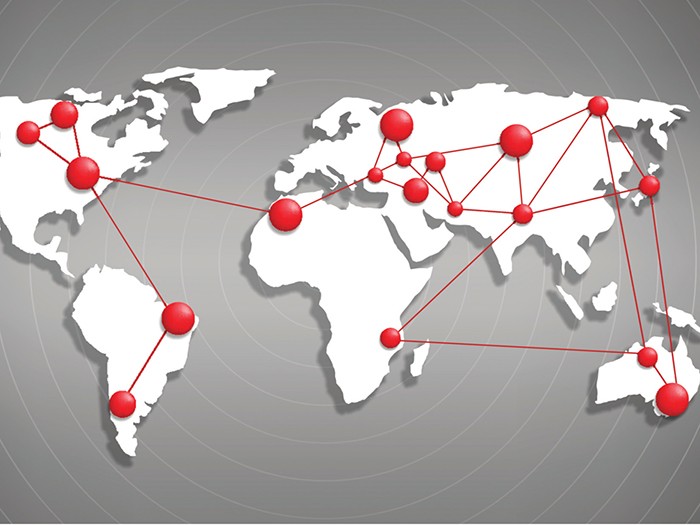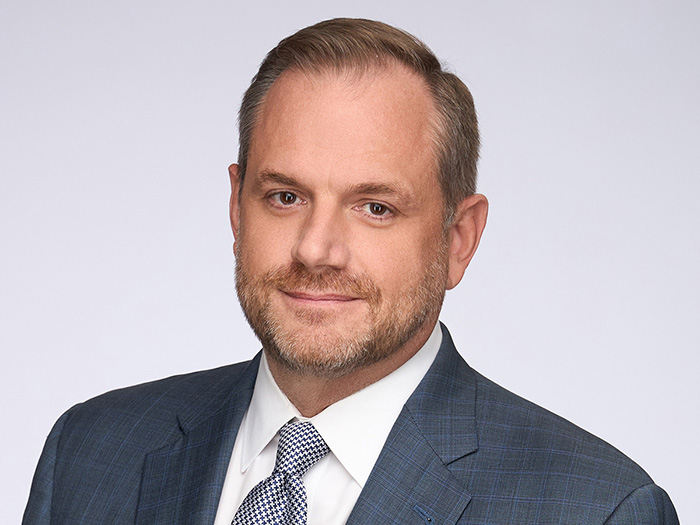These Are the Disturbing Ways Manufacturing, Retail and Food Supply Chains Are Destabilizing Under Political Risk

The waters of global trade are growing murkier than ever for importers and exporters. The departure of the UK from the European Union, trade scuffles between U.S. and China and a new North American Free Trade Agreement have all brought uncertainty to supply chains in the past year. U.S. retailers and manufacturers, while concerned about the prospect for tariffs, say uncertainty is especially challenging.
While these individual developments may be a short-term obstacle, experts say a bigger issue lies in entering a new era of global trade that may not be as open and free as in the past couple of decades.
Compliance and risk management experts add that organizations will have to think more carefully about their supply chains and strategize to reduce the risk.
New Levels of Uncertainty in Global Trade
The year leading up to the UK’s departure from the European Union on March 29 has provoked concern for global supply chains.
U.S.-China relations have also been bumpy, and the Trump administration announced, in early-2018, tariffs as high as 25 percent on $200 billion worth of Chinese imports. While that decision was postponed on several occasions, it includes everything from metal products and electronics to auto parts and textiles, according to the Office of the United States Trade Representatives.
Importers and exporters have dealt with trade regulations before, but it’s uncommon for so many things to happen at once with so little clarity.
“It’s unlike anything we’ve seen,” said Gabrielle Griffith, director at BPE Global. “Free trade agreements being on hold, being redrafted — it’s all occurred before but never with as little guidance as we are being given at the moment.”
And most American companies aren’t accustomed to dealing with tightening trade agreements.
For the past three decades, global trade has trended towards freer trade with more seamless transactions and borders, said Kamala Raman, senior director analyst in supply chain at Gartner. “People have gotten really used to long, global supply chains … They’re not used to worrying about where things come from and that’s starting to change,” Raman said.
The rise of populist governments and prospects for protectionist policies raises concerns among importers and exporters around the globe. Retailers from the British Retail Consortium warned in a letter in late-January that a no-deal Brexit could threaten the food security in the nation and leave shelves empty as one-third of country’s food comes from the EU.
In the U.S., National Association of Manufacturers (NAM) president and CEO Jay Timmons said in an August 2018 statement that while tariffs “may be an attempt to create more leverage, they also increase the risks for manufacturing in America and add to mounting uncertainty.”
The current unfolding environment is one that could result in a surge in tariffs, goods being held up at customs, longer waits at the border and contractual liabilities for the late arrival of goods, said Laura Burns, senior vice president and U.S. political risk leader for political and credit risk financial solutions at Willis Towers Watson.
“It fundamentally changes the risk environment for multinationals as these are quite large financial implications,” Burns said.
Mapping Supply Chains and Modeling Scenarios
Organizations can’t influence the direction of trade agreements, but they can mitigate some of the risks and negative impacts. Griffith recommends creating a “playbook” by mapping out products through the supply chain and identifying import and export controls.
Organizations should also ensure their products are properly classified according to the Harmonized Tariff Schedule, as misclassification is not uncommon.
Risk managers can use that map and information to identify what supply lanes may be impacted in the loss of free trade agreements, then they can determine the best course of action.
For example, a U.S. company with a supply-chain-lane to the EU may have a partnership with a UK-based entity for tax purposes but moves goods to warehouses in Amsterdam for logistical reasons. In the post-Brexit world, the tariffs could outweigh certain tax or logistical benefits of the locations.
“Free trade agreements being on hold, being redrafted — it’s all occurred before but never with as little guidance as we are being given at the moment.” — Gabrielle Griffith, director at BPE Global
“You can model for nothing happening or model for the split, at which point you’ll have to move your company registration to the EU or start paying taxes,” Griffith said. “You need to understand how it impacts your organization.”
U.S. importers should also more carefully review their products to identify their true origin. While many U.S. companies assemble products in China and then have them shipped here, they’re not always made with Chinese components.
For instance, a company may source 95 percent of its components elsewhere in Asia, then only do final assemble in China before shipping the products to the United States. “In that case, it may not qualify by the regulatory definition of ‘country of origin’ for being considered as a country of origin in China,” Griffith said.
Organizations should use insight like this to model different scenarios to find the measures that produce the best outcomes. Risk managers may need to consult and communicate departments across the organization, including operations, tax, finance and legal.
Many manufacturers, such as those in the steel and metal industries, achieved success passing on higher costs to end users, said Marc Wagman, managing director of trade credit & political risk at Gallagher. While such price elasticity could remain somewhat sustainable in a strong economy, a global recession or downturn would exacerbate the supply chain risks: “In that scenario, pricing leverage over the customer base can disappear quickly,” Wagman said.
Looking Ahead
As Brexit and U.S.-China relations may be a hint of what’s to come, organizations must look beyond these single events and consider the potential for tightening trade agreements, Raman said.
Manufacturers, retailers and importers must adopt a forward-thinking approach about diversifying their supply chains and planning for long-term “big picture” scenarios, she added.
“If you must treat every single incident as a one-off problem to solve, you’re always going to be on the backfoot … Before 2016, no one thought tariffs or Brexit would be an issue. We can’t know what’s going to come in 2021 or 2022,” Raman said.
Some importers are sharing costs with suppliers or customers. Others are diversifying their supply chains by ordering from several strategically-located suppliers in different regions.
There’s also evidence that some companies are divesting in subsidiaries and foreign partnerships. The recent Global Corporate Divestment Study by EY found a record 87 percent of companies were planning to divest in the next two years, and of those, 62 percent said cross-border trade agreements were driving their divestment decisions.
Many are also reviewing their insurance policies, said Daniel Riordan, president of political risk, credit and bond at AXA XL. While political risk insurance doesn’t cover the fallout of a bad trade deal, it can help when new laws put a company in a situation where it’s unable to pay its suppliers, get goods to market or operate. “When it comes to the level of being punitive, political risk insurance can help make a company whole,” Riordan said.
Trade disruption insurance can also cover the gap in some traditional programs, even when there isn’t a physical loss or damage, Burns added. It typically offers global enterprises protection from loss of profits, extra expenses, trade sanctions, embargoes and delayed debt repayments.
Despite the current concerns and uncertainties, global trade is growing and unlikely to be significantly deterred by any new trade agreements. What it does mean is that organizations will have to learn to “play by new rules and adjust their risk models” when it comes to their supply chains, Riordan said.
“We’re entering a new era. There’s great opportunity, but political relationships have been challenging and there’s a big of reaction to the global consensus about how things should operate.” &








